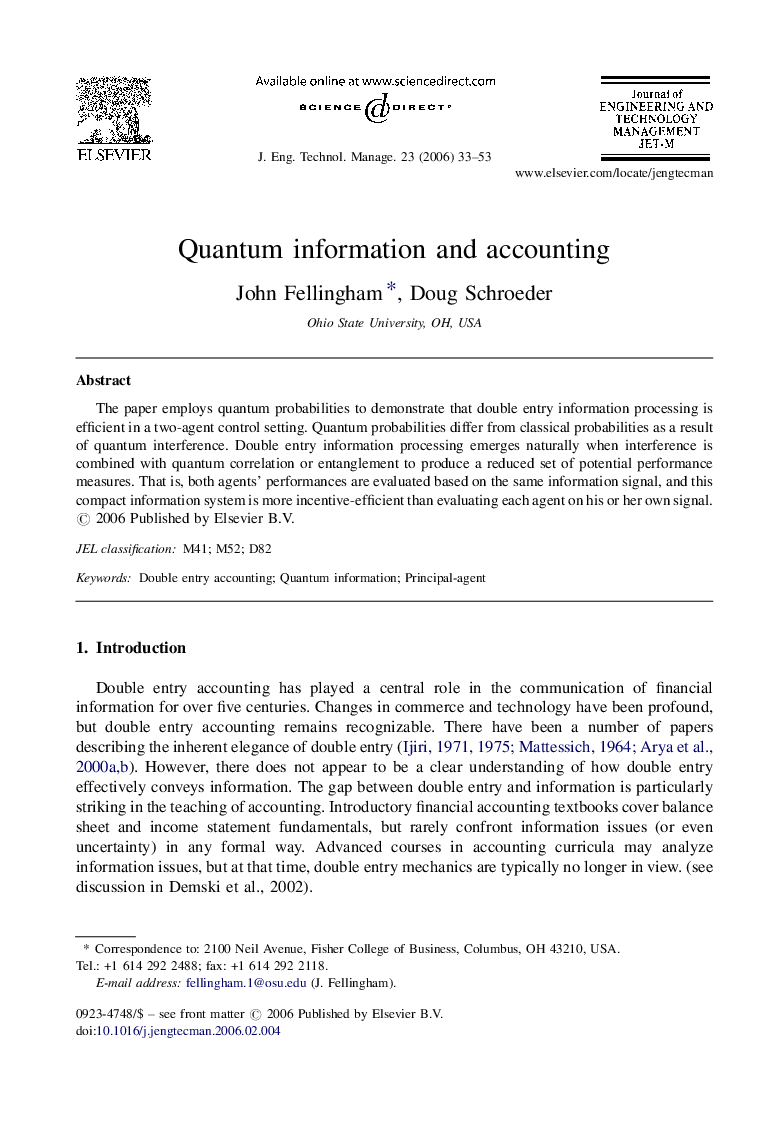| Article ID | Journal | Published Year | Pages | File Type |
|---|---|---|---|---|
| 1006525 | Journal of Engineering and Technology Management | 2006 | 21 Pages |
Abstract
The paper employs quantum probabilities to demonstrate that double entry information processing is efficient in a two-agent control setting. Quantum probabilities differ from classical probabilities as a result of quantum interference. Double entry information processing emerges naturally when interference is combined with quantum correlation or entanglement to produce a reduced set of potential performance measures. That is, both agents’ performances are evaluated based on the same information signal, and this compact information system is more incentive-efficient than evaluating each agent on his or her own signal.
Related Topics
Social Sciences and Humanities
Business, Management and Accounting
Accounting
Authors
John Fellingham, Doug Schroeder,
